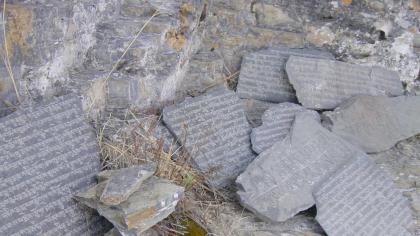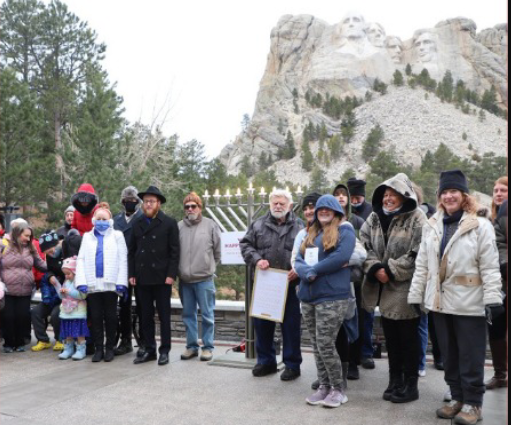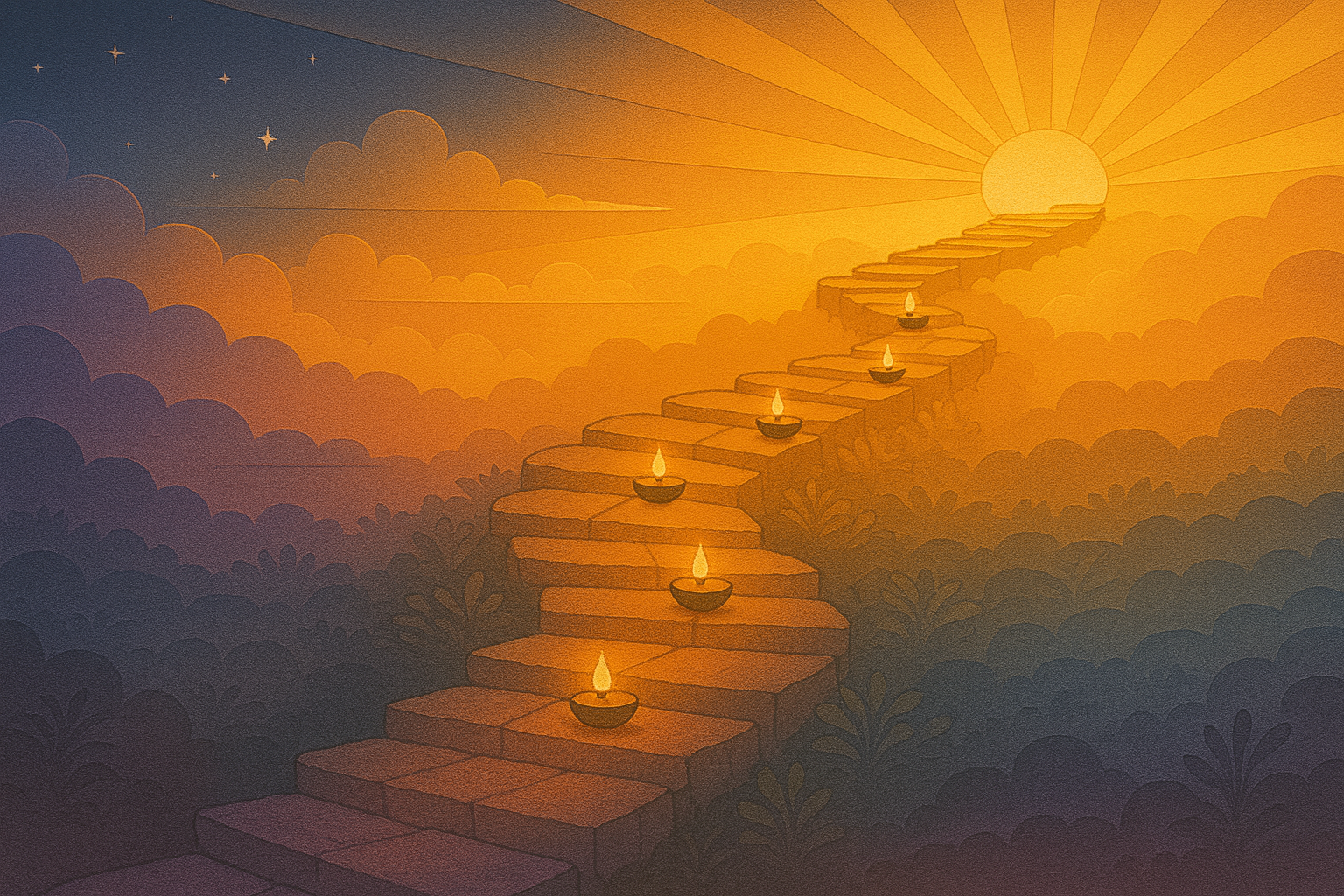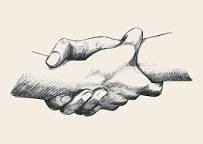January 8, 2023|ט"ו טבת ה' אלפים תשפ"ג Vayechi 5783 - Knowing My Way Isn't the Only Way
Print ArticleRabbi Shlomo Riskin tells a story about one of his first visit to Eretz Yisrael.
It was 1960, and he was volunteering as a counselor an elementary school in Baka, Jerusalem. The school had received an recent influx of children from North Africa, and it was Rabbi Riskin’s job to daven with them each morning.
To the dismay of the faculty and the other children in the school, the recently-arrived children had never before seen a toothbrush or toothpaste and did not use them.
Thinking he was being resourceful and helpful, Rabbi Riskin purchased a pair for each child, and they would all brush their teeth together with before davening each day. A few days later, Rabbi Riskin received a message that the leader of the community, an elderly Chacham, wanted to see him. He was not happy with the Tooth brushing.
Rabbi Riskin comes in to see the Chacham, an elderly man well-on in years and with not one tooth in his mouth. And he says the following: “We know that our mouths are holy, and especially when we daven. In fact, we are taught that the gift of speech is that special human element of our soul that Hashem breathes into our mouths us each and every morning. So, how could we sully our pure, holy mouths with that dirty paste before we have the opportunity to use that holiness to daven to Hashem!?”
Rabbi Riskin reported that beginning the next day, they would daven first, and THEN brush their teeth.
Sometimes we think we have it all figured out. And then sometimes we are reminded that our approach isn’t the only one that has merit.
As we come to the conclusion of the story of Yosef and his brothers this week, in literally the very last chapter of the story, we find what at first glance seems like one of the saddest parts of the whole story.
The brothers have gone to Eretz Yisrael together to bury Yaakov and have now returned to Egypt.
At that point, the Torah tells us that now that the reality of Yaakov’s death had set in, the brothers become nervous that Yosef will exact revenge. So they approach Yosef and tell him the following:
בראשית פרשת ויחי פרק נ
(טז) וַיְצַוּוּ אֶל יוֹסֵף לֵאמֹר אָבִיךָ צִוָּה לִפְנֵי מוֹתוֹ לֵאמֹר:
They commanded Yosef: This is what your father told us to tell you before his death.
(יז) כֹּה תֹאמְרוּ לְיוֹסֵף אָנָּא שָׂא נָא פֶּשַׁע אַחֶיךָ וְחַטָּאתָם כִּי רָעָה גְמָלוּךָ וְעַתָּה שָׂא נָא לְפֶשַׁע עַבְדֵי אֱלֹהֵי אָבִיךָ וַיֵּבְךְּ יוֹסֵף בְּדַבְּרָם אֵלָיו:
Tell the following to Yosef: Let go of the sin of your brothers, even though they wronged you. Let go of the sin of the servants of the Gd of your father.
And there is a lot of confusion surrounding this story:
1) If Yaakov really said this, why don’t we hear about it earlier?
2) Why do they use such a cryptic phrase, “To forgive Avdei Elokei Avicha” the servants of the Gd of your father?
3) Why does Yosef cry when he hears what they have to say?
Rashi quotes a medrash which seems to answer most of these questions:
The Medrash explains that when they returned from burying Yaakov, the brothers were no longer invited to eat with Yosef at the same table, and they believed he was still angry with them.
The Sifsei Chachamim explain that Yosef actually had a different reason for changing how they ate. He didn’t want to sit at the head of the table where Reuven the bechor and Yehuda the future King were sitting.
But, once again, rather than communicating, the brothers fabricate a story about Yaakov telling Yosef to forgive the brothers, in hopes of placating Yosef.
Yosef begins to cry. Why? Because he sees that even 17 years after their reunion, he and his brothers still can’t trust each other. They still can’t communicate openly and honestly, and he sees that their relationship may never really be salvageable.
This is certainly a reasonable – and perhaps the most logical - explanation of this tragic end to a tragic story.
However, I would like to share with you a slightly different explanation, which offers us a unique angle not just on the story, but on the overall lesson of the story of Yosef & His Brothers.
Rav Simcha Bunim of Peshischa, the second rebbe of Peshischa, in Poland in the late 17-early 1800s explains the story as follows:
If we drill down, there was one CORE ISSUE that led to the dispute between the brothers and Yosef: They all knew the stories of grandparents. And they knew that in each of the previous generations, one child was chosen to continue the legacy of his father, while one was sent off on his own.
Avraham chose Yitzchak while Yishmael was rejected.
Yitzchak chose Yaakov, while Esav was rejected.
And so, when they watch Yosef tell them his dreams, they see the same thing happening. One son, chosen amongst the rest, who will continue their father’s legacy, while the rest of them are forgotten in the dustpan of history. And so, as a matter of self-preservation, they get rid of Yosef.
And argues Rav Simcha Bunim, that even once they are reunited, they continue to wonder, maybe Yosef really is still the CHOSEN ONE. After all, no matter what we’ve tried, he always rises to the TOP!!
But there was one moment when that all changed:
When they sat around Yaakov Avinu, and “Ish k’birchaso beirach osam”, they saw that he gave EACH AND EVERY BROTHER his OWN BRACHA, they realized that they were wrong. There wasn’t going to be ONE CHILD to continue the legacy. There would be TWELVE!
And with this, Rav Simcha Bunim explains the whole story differently. The brothers aren’t now telling Yosef that our father TOLD US to TELL YOU to be nice to us!
Avicha Tziva, our father commanded us to COME TO YOU, to ask you to forgive us! And what should we tell you? That we made a mistake! We thought there needed to be a battle, a fight over who would be the chosen child. That’s what fueled all of this! We didn’t have anything personal against you, but it was still wrong!
That’s way they use the phrase, “Sa na l’fesha AVDEI ELOKEI AVICHA” forgive the sins of the servants of the Gd of your father. What a strange phrase!? But the point is that THIS WAS THE STRUGGLE! Who would be the next in line to serve the Gd of our parents and grandparents!? And that’s why this got so out of hand! But it was all a misunderstanding.
And if this is true, now we can understand why Yosef couldn’t hold back, and he was crying too: Says Rav Simcha Bunim, because he thought the same thing too. He DID think he was the chosen one, over time he started to doubt it, but now as he rose to power again, the leader of his brothers, he thought HE WAS THE NEXT IN LINE, NOT THEM.
And when he hears what they have to say, HE REALIZES HE WAS WRONG TOO! And at that moment he speaks kindly to them. He says it’s not your fault.
And in the end, when he wants to ensure that his body will eventually be brought back to Eretz Yisrael, who does he ask? He should have asked his children. But he doesn’t. He asks his brothers. Perhaps as a sign of the renewed trust that they finally share, now that they realize THEY ALL HAVE A PLACE IN THE FUTURE OF AM YISRAEL.
According to Rav Simcha Bunim, it was at this moment, on the precipice of the shift from being a family of Ivrim to becoming a the Nation known as Am Yisrael, that the shevatim finally realized that if they were going to be successful in this next stage, at becoming a nation, they would need to learn that there would NOT BE ONLY ONE PATHWAY in Avodas Hashem. There were 12 of them for a reason. To signify to their children, grandchildren, and all future generations, that although there are, of course, certain parameters for a life of Torah & Mitzvos, there is room for everyone to find their own way.
I would like to think that I’m a relatively tolerant, open-minded person. I’m sure many of you feel the same way. And yet, I think we can be honest with ourselves and acknowledge just how difficult it can be at times to accept the approach of those who think, act, and practice Judaism differently than we do. Those who choose a way of life that is more right or more left. More open or more closed. And that could be because we feel that validating their approach somehow NEGATES my own. If her way of life is TRUE and CORRECT, then what does that say about me?
First of all, it’s probably worthwhile that rather than getting defensive we lean into that discomfort and use it as an opportunity to do a little soul-searching. Maybe that discomfort comes from a place of realizing I can be a little more aware and thoughtful about my choices in my personal Avodas Hashem.
But even beyond that, I think Rav Simcha Bunim reminds us that there can be MULTIPLE AVENUES in our AVODAS ELOKEI AVICHA, in how we connect with HKBH. And yes, I can live a life that I believe in and it can be true, and that other person’s life can be true as well. Their approach may not be for me, but that doesn’t HAVE to mean it’s wrong.
And I this is important for two reasons:
1) Even if we’re not acting in a disparaging way towards other Jews, the way we think about and the way we speak about other Jews has an impact on our ability to develop a healthy sense of Ahavas Yisrael and to pass it down to our children.
2) When we can look at other hashkafos and ways of life as valid, even if not for us, we can learn from them without negating ourselves.
Seeing the validity and beauty in the way of life of other Jews, even if their way is not our way, allows us to live the true legacy of the children of Yaakov: Knowing that there can be multiple ways to be Avdei Elokei Avicha, multiple valid, beautiful paths to find a meaningful relationship with Hashem.




